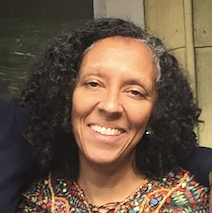Tag Archive: movement
January 27, 2021
“At times our own light goes out and is rekindled by a spark from another person. Each of us has cause to think with deep gratitude of those who have lighted the flame within us.“
Albert Schweitzer
As a number of networks I am supporting are settling into the lingering reality of operating within our COVID19 context (“2020 still feels like it’s with us!”), uncertain of what resolution will look like or mean, we have been having more conversations about how to maintain momentum around key goals (food justice, health equity, equitable conservation, climate adaptation and mitigation) and also lead with care, supporting collective regenerative capacity. Through explicit asking and reading what is coming up through people’s engagement, here are some ideas for how to keep movement going over this lengthening haul in sustaining fashion.
- Put movement into the movement (literally invite people to move their bodies during and in-between on-line and phone meetings)
- Leverage the power of one to one conversations (they can often be more nimble and dynamic, including having people walk and talk to one another)
- Keep some meetings agenda-free (and follow the emergent energy)
- Share stories, music, recipes, jokes, games
- Stay open to spontaneity
- Lean into humor!
- Do a meditation, be silent together
- Give grace – “It’s okay to not be okay”
- Make space for teach-ins and knowledge sharing
- Invite people to not look at screens, and to look out windows
- Offer different kinds of conversation models – Six Conversations model, for example
- Use flexible and asynchronous means/tools for moving work forward (Google docs, MURAL, etc.)
- See, appreciate and “amplify” one another
- Use more visuals to focus on tasks and be less presentation-oriented
- Bring in pictures and sounds from the natural world
- Keep more personal meetings shorter
- Stay focused on what is essential and let the rest go (see the urgent/important matrix)
- Schedule long meetings as multiple meetings with a shared agenda over time to break it up
- Remember this is not ours alone to do or solve and that there are others out there, including those we do not know
What would you add?
“We never know how our small activities will affect others through the invisible fabric of our connectedness. In this exquisitely connected world, it’s never a question of ‘critical mass.’ It’s always about critical connections.“
—Grace Lee Boggs
February 21, 2017
This is a slightly edited version of a post from about 3 years ago, and it feels more timely in light of current events. Many groups with whom we work at IISC are trying to find a way to stay resilient amidst onslaughts and uncertainties. I have found my own need for personal practice to have grown accordingly.
When I take time to slow down my interest is always refueled in practices that support my and others’ ability to maintain perspective and a sense of effective agency in the world. My line of inquiry is not simply focused on what can keep me energized, pull me back from the edge, or deal with burn-out, but also how I can align my internal state with external aspirations in an integrated way. My thinking and reading often takes me back to the work of Barbara Fredrickson, the emotions scientist based at the University of North Carolina, as well as to others in the fields of positive and social psychology. Having revisited some of these writings again recently, here are 10 recommended practices for personal and social resilience: Read More
March 20, 2015

I have had many conversations recently about network form and transition, all of which have me thinking of what we often talk about in our practice at IISC: balancing acts. The core approach that informs our work in the world is Facilitative Leadership, which strives to create and inspire the conditions for collaborative and net work that yields greater, more sustainable and equitable change. In co-creating these conditions, as process designers, facilitators, trainers and coaches, we invoke a variety of practices and frameworks, each of which has its own dynamic range of considerations. Read More
July 18, 2014

We partnered with a foundation as they built a network of leaders who shared a deep passion for their city. In the beginning, many of the leaders wanted to do something together quickly. We encouraged them to pause, build deeper relationships, and see what emerged. Read More
March 25, 2014

This post is a response to yesterday’s post by Cynthia Silva Parker.
I was truly moved by Cynthia’s heartfelt exploration of anger and its role in our quest for justice. I get angry. I get angry in some healthy ways, and in many unhealthy ways.
Read More
March 3, 2014

Four compelling questions came to me via the monthly newsletter of Conditioning Leaders, led by our colleague Madeline McNeely. She’s reflecting on 20 years of work and asking herself some great questions that we should all be asking ourselves as our year gets into full swing:
Read More
February 24, 2014

Enjoy these simple and powerful guidelines from Beth Kanter about how movement makes meetings and workshops more productive. This is great advice for getting beyond designing for “brains on sticks” as my colleague Curtis Ogden likes to say.
As a trainer and facilitator who works with nonprofit organizations and staffers, you have to be obsessed with learning theory to design and deliver effective instruction, have productive meetings, or embark on your own self-directed learning path. Learning theory is an attempt to describe how people learn. There are many learning theories and can be categorized in different ways:
Read More
February 18, 2014

8/14/14 Update: Sadly the list of names in this post has grown in the past week with the deaths of Eric Barnes and Mike Brown. In both cases it appears that aggressive policing of minor offenses escalated, resulting in deaths that did not need to happen. #blacklivesmatter
I find the fact that we need a conversation called #BlackLivesMatter disturbing. But it’s a badly needed conversation and one that needs to catalyze effective action. It’s urgent that we create a context where it’s no longer “understandable” that someone could be afraid enough of an unarmed black person to justify killing him or her.
Read More
February 3, 2014

The following post has been written by Royve Holladay at The Adaptive Action. We hope you enjoy it as much as we did!
Can three questions really change the world? Well, maybe. Let’s think about it for a minute. One thing we know about schools is that nothing stays the same for long. Each year brings the latest “best practice.” Each week brings a new procedure and its paperwork. Each day, our students pose new challenges. Each hour, the media bombards us with news about the latest crisis. What might possibly help us keep our balance as the world shifts beneath us?
Read More
January 26, 2014

The following post has been reblogged from our friend August Turak. Check out more of August’s amazing work!
The industrial age led to the compartmentalization of life. We turned everything into a silo. We even siloed ourselves. Here I am spiritual, here I am fun, here I work… We have been looking at personal development through that limited lens. But August Turak points us in a different direction. He invites us to make “personal development” the central purpose of our lives. When we make our own evolution a central purpose in our lives we become active contributors to the evolution of consciousness and culture as well as the material changes we want to see in the world. I hope you enjoy this post from August Turak as much as we did.
Read More
December 23, 2013

The following blog post was written by our friend Julie Quiroz at The Movement Strategy Center. We hope you enjoy it at as much as we did!
Remember this spring, when the Associated Press finally dropped the I-word, and youth of color defeated prison-to-pipeline policies in Los Angeles public schools?
Or remember back in February when 50,000 people rallied in DC against the XL Pipeline? And then in October when the protests of 5,000 young people linked the pipeline, fracking, and the whole mess of fossil fuel development?
Read More
December 17, 2013

Stowe Boyd has posted a provocative and largely resonant manifesto on the future of work. Our ways of doing business are thoroughly obsolete, “only 29% [of workers] are actively engaged with work.” If this obsolescence is true for the private sector, it is even more true for those of us who work for justice.
Read More













